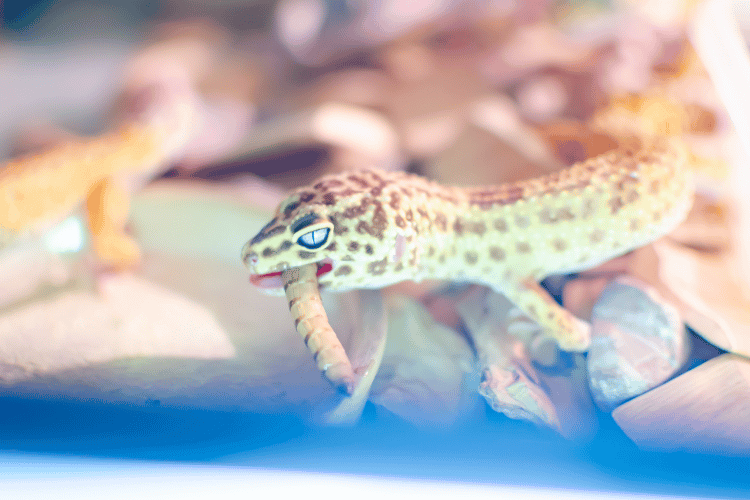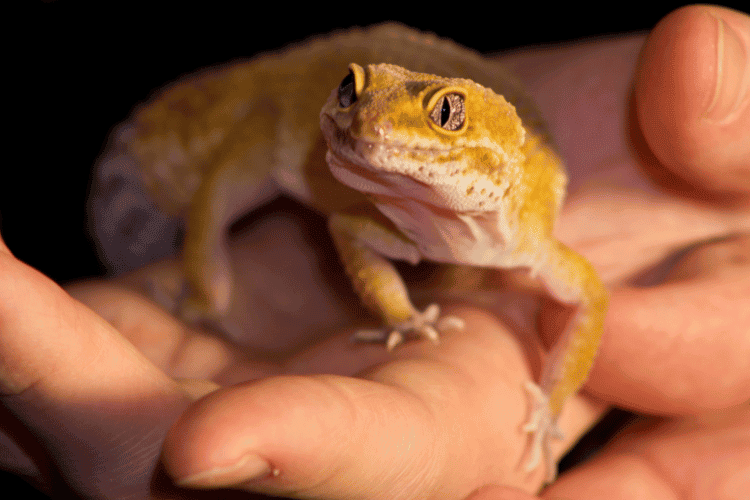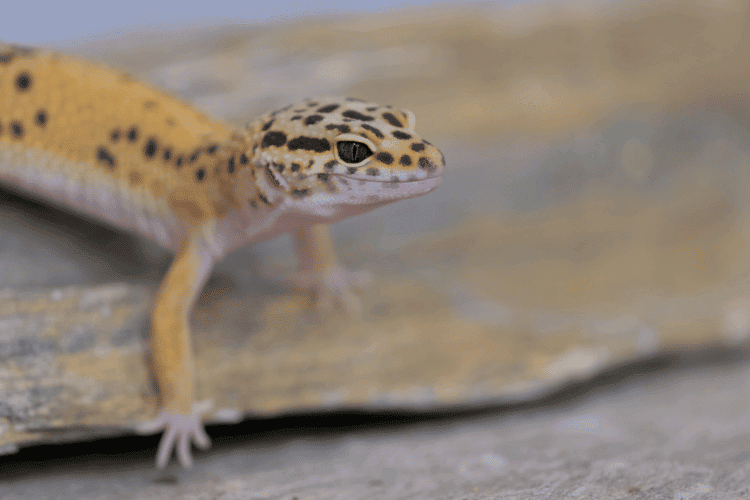
If you’re concerned about your leopard gecko’s gagging, you’re not alone. Gagging is a common behavior in leopard geckos, and it can be a cause for concern for owners. But don’t worry, it’s not always a sign of a serious problem.
In fact, leopard geckos are unable to vomit. So if your gecko is gagging, it’s because something else is going on. It could be a digestive problem, a respiratory problem, or even stress.
The good news is that most of the time, gagging in leopard geckos is not a serious problem. But it’s always best to take your gecko to the vet to rule out any underlying health issues.
In the meantime, there are a few things you can do to help your gecko feel better. First, make sure they have a warm, quiet place to rest. You can also try offering them a shallow bowl of water. And avoid handling them until they are feeling better.
The Many Reasons Why Leopard Geckos Gag
Leopard geckos are unable to vomit, so gagging is a sign of something else going on. There are many reasons why leopard geckos might gag. Some of the most common causes include:
- Swallowing air while eating: Leopard geckos are obligate nasal breathers, which means they can only breathe through their noses. If they swallow air while eating, it can cause them to gag. This is especially common if they are eating too fast or if the food is too large.
- Digestive problems: Leopard geckos are prone to digestive problems, such as constipation and impaction. These problems can cause them to gag as they try to pass food or waste.
- Respiratory problems: Leopard geckos can also develop respiratory problems, such as pneumonia. These problems can cause them to gag as they try to breathe.
Here are some other, less common reasons why leopard geckos might gag:
- Stress: Leopard geckos are also susceptible to stress. If they are stressed, they may gag as a way to relieve their anxiety.
- Impaction: Impaction is a serious condition that occurs when food or other material becomes stuck in the leopard gecko’s digestive tract. This can cause them to gag as they try to pass the blockage.
- Foreign objects in the throat or stomach: Leopard geckos are curious creatures and they may sometimes swallow foreign objects. These objects can cause them to gag, and in some cases, they can even be fatal.
- Parasites: Leopard geckos can also be infected with parasites, such as worms. These parasites can cause them to gag, and they can also lead to other health problems.
- Bacterial or viral infections: Leopard geckos can also develop bacterial or viral infections, which can cause them to gag. These infections can be serious and they should be treated by a veterinarian.
When Is Gagging a Cause for Concern?

If you’re concerned about your leopard gecko’s gagging, here are a few things to keep in mind.
Gagging is usually not a cause for concern, but if it’s frequent, severe, or accompanied by other symptoms, it’s best to take your gecko to the vet. They’ll be able to help you figure out what’s going on and get your gecko back to feeling their best.
Here are some instances when gagging in leopard geckos is a cause for concern:
- The frequency of the gagging: If your leopard gecko is gagging only occasionally, it is likely not a cause for concern. However, if the gagging is frequent or persistent, it is important to take them to the vet.
- The severity of the gagging: If your leopard gecko is gagging violently or if they are struggling to breathe, it is a medical emergency and you should take them to the vet immediately.
- The presence of other symptoms: If your leopard gecko is gagging and they are also showing other symptoms, such as vomiting, diarrhea, or lethargy, it is also a cause for concern. These symptoms can indicate a more serious underlying health problem.
- Your leopard gecko’s age and overall health: If your leopard gecko is young or elderly, or if they have any underlying health conditions, they are more likely to be susceptible to gagging.
How to Identify the Cause of a Leopard Gecko’s Gagging?
Here are some things you can do to identify the cause of your leopard gecko’s gagging:
- Observe your leopard gecko’s behavior: Pay attention to how often they are gagging, how severe the gagging is, and if they are showing any other symptoms.
- Check your leopard gecko’s enclosure: Make sure the temperature and humidity levels are correct, and that there is no food or water that could be causing the gagging.
- Take your leopard gecko to the vet: If you are concerned about your leopard gecko’s gagging, the best thing to do is take them to the vet. The vet will be able to examine your leopard gecko and determine the cause of the gagging.
Here are some questions that the vet may ask you to help them diagnose the cause of your leopard gecko’s gagging:
- How long has your leopard gecko been gagging?
- How often are they gagging?
- Is the gagging severe?
- Are they showing any other symptoms?
- What do you feed your leopard gecko?
- How often do you clean their enclosure?
- What is the temperature and humidity in their enclosure?
The vet may also perform a physical examination of your leopard gecko, including a fecal exam to look for parasites. In some cases, the vet may need to take X-rays or ultrasounds to see if there is anything blocking your leopard gecko’s digestive tract.
How to Treat a Gagging Gecko?

here are some things you can do to treat a gagging leopard gecko:
- Take them to the vet.
- Provide them with a warm, quiet place to rest.
- Offer them a shallow bowl of water.
- Avoid handling them.
- Monitor their behavior.
Here are some of the treatments that the vet may recommend:
- Medication to treat parasites or infections
- Surgery to remove a blockage in the digestive tract
- Changes to the diet or environment to prevent gagging from happening again
Conclusion
Leopard geckos are unable to vomit because they lack a gag reflex. This is because their esophagus and trachea are connected, so if they were to vomit, they would also vomit up their food and air.
So a gagging gecko often indicates that something else is going on. But don’t worry, with a little TLC, your gecko will be back to their normal self in no time.
Gagging is a common behavior in leopard geckos, but it’s not always a cause for concern. If your gecko is gagging, it’s always best to take them to the vet to rule out any underlying health issues.


